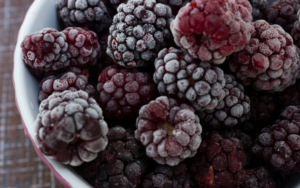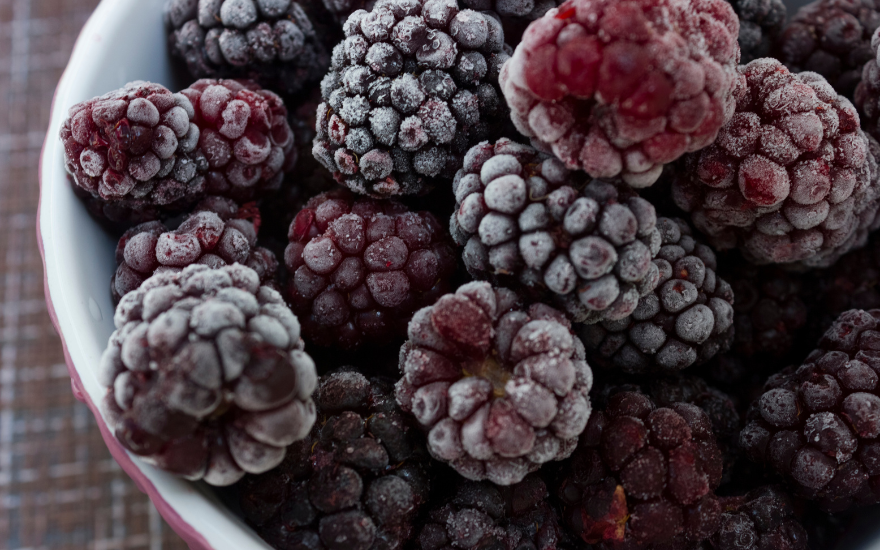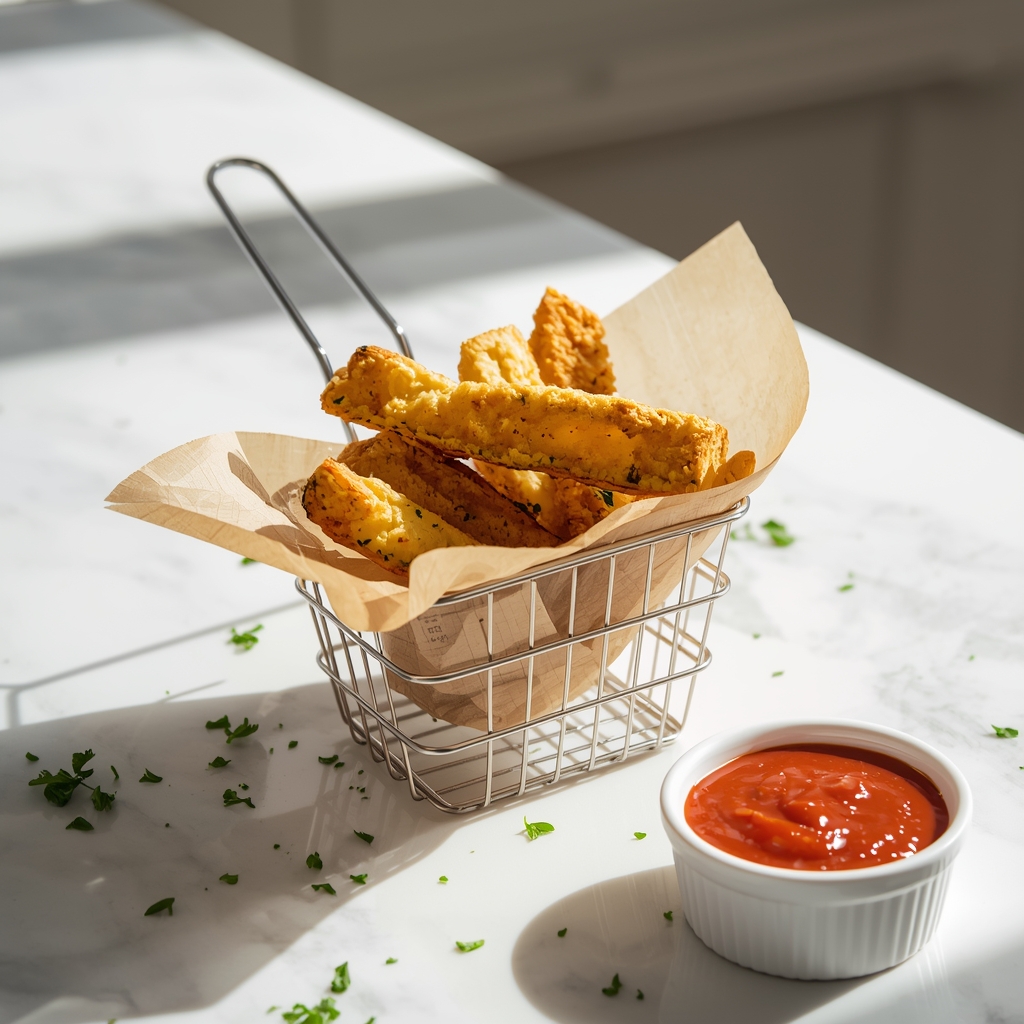
The convenience of frozen blackberries cannot be overstated. Having a bag of these frozen gems on hand means that I always have a ready-to-use ingredient for smoothies, desserts, or even as a topping for oatmeal and yogurt. Unlike fresh berries that can spoil quickly, frozen blackberries are a waste-reducing option; they can be kept for longer periods and used as needed. Moreover, out-of-season, frozen blackberries offer a taste of summer year-round without the premium price tag of off-season fresh berries.
Key Takeaways
- Frozen blackberries provide a nutritious and convenient fruit option.
- They maintain a similar nutritional profile to fresh blackberries, rich in vitamin C.
- Their versatility and shelf stability make them a practical choice for a variety of uses.
Exploring the Benefits of Frozen Blackberries
Frozen blackberries are not just a delicious treat; they’re a powerhouse of nutrition and convenience. My examination of these benefits will illuminate why they deserve a place in your freezer.
Nutritional Profile and Health Perks
Frozen blackberries are nutritionally comparable to their fresh counterparts, maintaining a wealth of vitamins, minerals, and phytonutrients. One standout component is vitamin C, known for supporting immune function, with a single cup offering about 30% of the Daily Value (DV). The fiber content of frozen blackberries is impressive too, providing about 7.6 grams per cup, which aids in digestion and can help manage blood sugar levels.
The antioxidant capacity of blackberries is significant due to compounds like anthocyanins. Studies indicate that these phenolic compounds, abundant in blackberries, contribute to their high antioxidant potential, which is crucial in combatting oxidative stress and reduces the risk of chronic diseases.
| Nutrient | Amount per Cup (DV%) |
|---|---|
| Vitamin C | ~30% |
| Fiber | ~31% (7.6 g) |
| Calories | ~62 |
| Antioxidants | High in anthocyanins |
Convenience and Year-Round Availability
The allure of frozen blackberries extends beyond their nutritional profile to their practical advantages. These berries, available year-round, are frozen at peak ripeness, ensuring that the taste and nutritional quality are locked in. This means that even in the depths of winter or the height of summer, I can enjoy their rich, sweet flavor.
Moreover, their convenience is unmatched. There’s no need to thaw frozen blackberries if I’m tossing them into a smoothie or baking them into a dessert, which is a real time-saver. They’re also excellent for meal preppers or anyone looking to streamline their kitchen activities.
Mastering the Art of Using Frozen Blackberries
Before diving into specific techniques, it’s important to understand that frozen blackberries offer a convenient and versatile option for a variety of recipes. Handled correctly, they can provide excellent flavor and texture to your dishes.
Thawing Techniques for Optimal Texture
Thawing frozen blackberries is a delicate process that, when done correctly, can preserve their integrity and flavor. To achieve the best texture, layout the blackberries in a single layer on a paper towel-lined plate. Let them defrost in the refrigerator overnight. This gradual thawing helps maintain their shape and minimizes excess moisture which could lead to sogginess.
Alternatively, for immediate use, you can place them in a colander under cold running water. Shake the colander occasionally to ensure all the berries get evenly thawed. Be gentle to avoid breaking the fruit, and once thawed, pat them dry with paper towels before using them in your recipe.
Incorporating Frozen Blackberries in Baking
When baking with frozen blackberries, there’s no need to thaw them if your recipe doesn’t require it. By adding them frozen, you prevent the berries from turning the batter purple and help maintain their shape. To prevent sinking, toss the frozen blackberries in flour to lightly coat them before folding into your batter.
For instance, when making a blackberry crisp with frozen berries, I integrate them directly into the mixture before baking. Remember to adjust baking time as using frozen berries may require a few additional minutes in the oven. Preheat your oven as the recipe indicates, and ensure the blackberries are evenly distributed to allow uniform cooking.
Tips for Selecting and Storing Frozen Blackberries
In my experience, proper selection and storage of frozen blackberries are crucial for maintaining their taste and extending their shelf life. Here, I’ll guide you through choosing the best quality frozen fruit and the most effective ways to store them.
Choosing Quality Frozen Fruit
When selecting blackberries, I ensure they are individually quick frozen (IQF). This method keeps each berry separate and prevents clumping, making them easy to use in recipes. I check the packaging for any signs of frost or ice crystals, which can indicate thawing and refreezing, negatively affecting flavor and texture.
Proper Storage for Longevity
I store frozen blackberries in my fridge freezer, maintaining a consistent temperature of 0°F (-18°C) or lower for optimal longevity. To protect against freezer burn, I use airtight containers or heavy-duty freezer bags, pressing out as much air as possible before sealing. If stored correctly, blackberries can last in the freezer for six to nine months, offering food savings by reducing waste and retaining quality.
I avoid incorporating additional sugar when freezing, as it’s unnecessary and can alter the berries’ natural flavor. Instead, I opt for a dry pack method, which preserves the blackberries’ original taste and nutritional value.
Creative Recipes Featuring Frozen Blackberries
In my kitchen, frozen blackberries are a versatile ingredient that can transform simple dishes into mouthwatering treats. Whether you’re in the mood for a classic baked dessert or a chilled beverage, I’ve got some creative recipes that will make the most of this flavorful fruit.
Delicious Blackberry Cobbler
When I bake my Delicious Blackberry Cobbler, I start by spreading frozen blackberries in a greased baking dish, mixed with sugar and a hint of lemon juice to balance the sweetness. I top the berries with a crumbly mixture of flour, sugar, and egg until it resembles coarse crumbs. Baked until golden brown and bubbling, this dessert is perfect when served warm and, if desired, with a scoop of vanilla ice cream.
Refreshing Blackberry Smoothies
My Refreshing Blackberry Smoothies begin with frozen blackberries, which ensure a cool, thick consistency. To the blackberries, I add Greek yogurt for creaminess and a drizzle of honey for natural sweetness. After blending until smooth, the resulting smoothie is both nutritious and delicious, acting as a perfect breakfast option or midday snack.
Innovative Blackberry Desserts
I like to get creative with Innovative Blackberry Desserts by incorporating frozen blackberries into various sweet concoctions. One idea is folding them into a homemade ice cream base before churning. Another is creating a blackberry sauce to drizzle over cheesecakes or panna cotta. The tartness of the blackberries pairs exceptionally well with creamy or rich desserts, adding a refreshing burst of flavor.
Considerations and Potential Risks

In choosing frozen blackberries, I focus on understanding their sugar content and navigating potential food allergies. Here’s what I consider:
Understanding Sugar Content
When considering frozen blackberries, I keep in mind their natural sugar content, which can vary based on the preparation process. Blackberries themselves are low in calories and rich in vitamins, but freezing can sometimes involve added sugars to preserve taste and appearance. For individuals monitoring their sugar intake, it’s essential to check product labels for added sugars. In baking, when I pair blackberries with items like all-purpose flour to make a pie, I balance the sugar content of the fruit with the overall recipe to manage the total calories and optimize the nutritive value of my dish. The process of osmotic dehydration with sugar can affect the retention of healthful components in blackberries, such as anthocyanins, which are known for their antioxidant properties (Mass transfer during osmotic dehydration).
Navigating Food Allergies
Since food allergies can be a significant concern, it’s crucial for me to know the ingredients of any food product I consume or serve, including frozen blackberries. I keep an eye out for potential cross-contact with allergens during processing, especially when the blackberries are processed in facilities that also handle common allergens. In the context of baking, I make sure to consider the potential inclusion of allergens in the frozen blackberries and additional components like the pie crust, which may contain allergens like gluten or dairy. I also make sure to label and communicate about potential allergens when I share food with others.

*We may earn a commission for purchases made using our links. Please see our disclosure to learn more.



